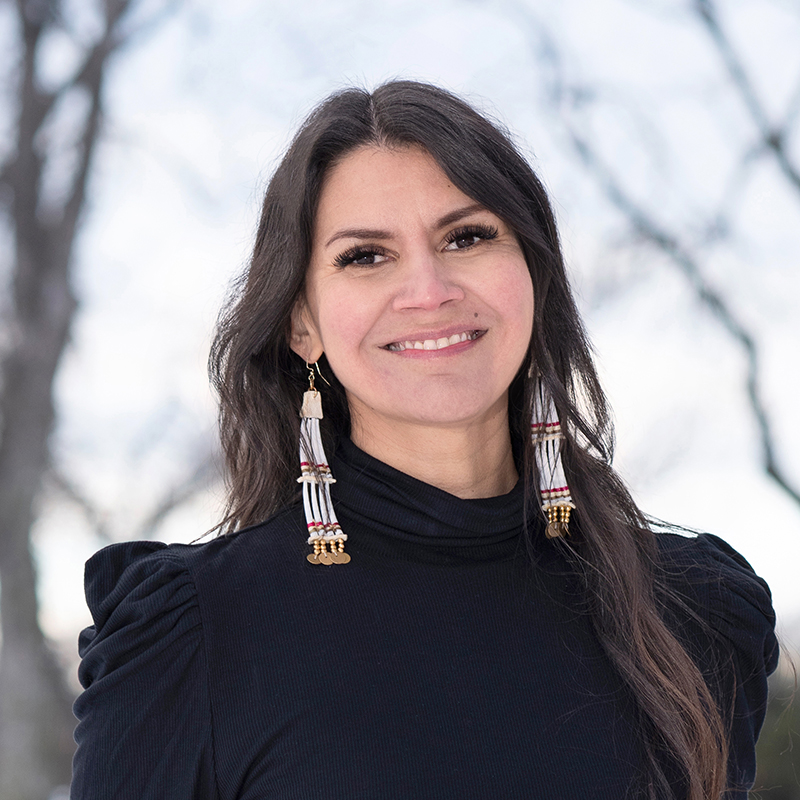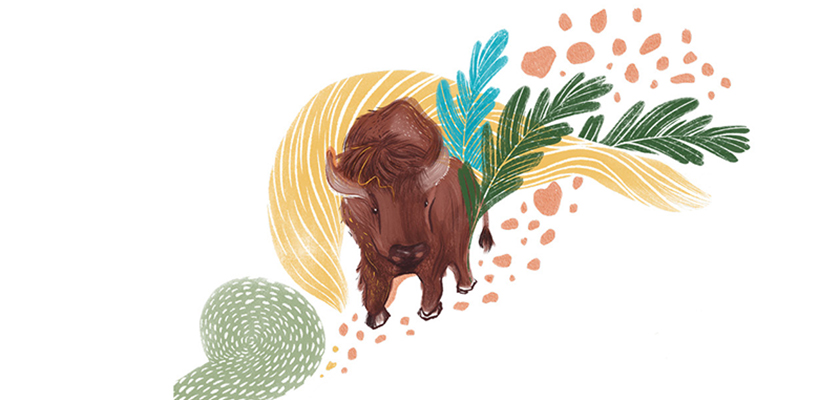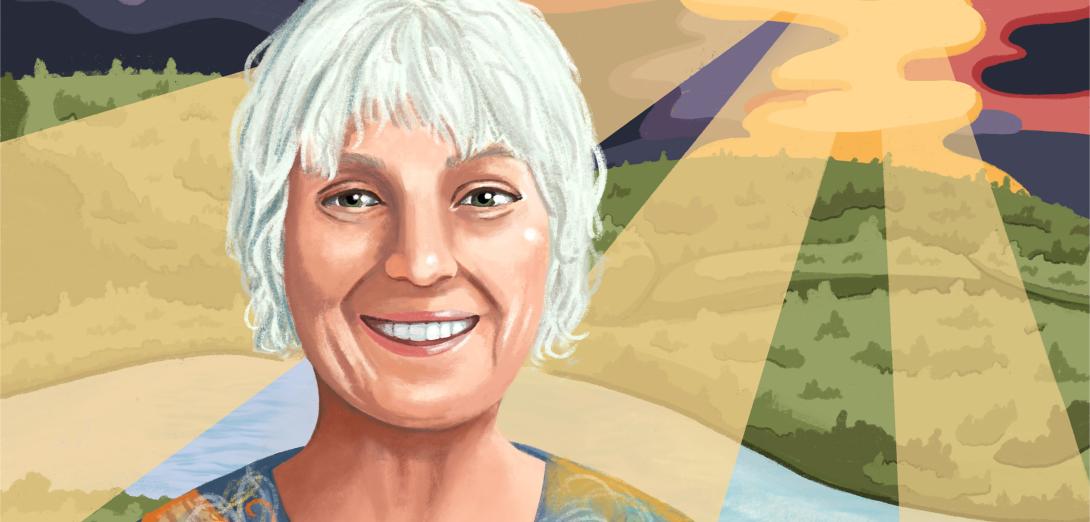Reconciliation is more than simply hiring an Indigenous person, creating a smudging room or hanging Indigenous artwork on the wall. Yes, these are entry points for indigenizing spaces; however, we must move beyond insincere or empty efforts to authentically contribute to truth
and reconciliation.
This journey includes non-Indigenous and Indigenous Peoples walking alongside each other, creating spaces and opportunities for authentic and respectful relationships, and working towards building a new way to collectively move forward. As stated by author Paulette Regan in her 2010 book Unsettling the Settler Within, educators must “recognize the possibility of opening transformative pathways on a journey that starts within ourselves — a journey of critical reflection” fundamentally based on truth, respect and kindness (p. 17).
Reflection is crucial in the reconciliation journey, but as Paulo Freire said regarding his banking concept of education, “thinking that is concerned about reality does not take place in ivory tower isolation, . . . [and] thought has meaning only when generated by action upon the world” (p. 120). In other words, we have a moral imperative to individually and collectively carry this work forward through meaningful action, intention and responsible care.
Reconciliation must be rooted in relationships and is a lifelong journey that includes critical self-reflection and actively contributing to meaningful and intentional positive change.
However, reconciliation must be more than performative action, “political theatre” or “framed in a nationalist narrative that displaces real accountability,” as Stacia Loft states in her article “Reconciliation...Really? From MacDonald to Harper: A Legacy of Colonial Violence” (p. 45).
Symbolic gestures and demonstrations must be fundamentally rooted in relationships and serve as a reminder of and commitment to our individual and collective contributions, rather than a “tipi and costumes approach,” as University of Alberta researcher Dwayne Donald puts it (p. 5).
Reconciliation must work “to ‘restory’ the dominant-culture version of history; that is, we must make decolonizing space for Indigenous history — counter-narratives of diplomacy, law, and peace-making practices — as told by Indigenous Peoples themselves,” Regan says (p. 6). And we “must recognize the strength and resilience of [Indigenous Peoples] who, despite the harms perpetrated against them, continue to resist colonialism, reclaiming and reconstituting their own governance systems, laws and histories, and ceremonies” (pp. 7–8), and support the resurgence and revitalization of the original peoples of this land.
Reconciliation as a relational process
Often educators feel the need to immediately jump into action-related behaviour without spending time becoming more aware of the significance and meaning of the learning that they are about to engage in. This often creates a superficial and sometimes tokenistic application or appropriation of First Nations, Métis and Inuit foundational knowledge. There is pressure for educators to demonstrate the application of First Nations, Métis and Inuit foundational knowledge through resources, initiatives or demonstrations of learning in classrooms and school communities. There is often a focus within our professional learning lives related to the tangible lesson plans or resources that can be applied the next day. Instead, establishing and strengthening relationships with Indigenous Peoples, languages, cultures, stories and traditions that are interconnected with the land, water, animals, plants and cosmos all around us can contribute to authentically moving reconciliation forward.
Reconciliation must be rooted in relationality and is a lifelong learning journey that includes critical reflection and actively contributing to systemic change by dismantling colonial constructs.
Know that with every small step, large step and every twist and turn in this journey, and working toward closing the relational gaps, that you will always be right when you are listening and responding with an open heart and open mind. Reconciliation must be rooted in relationality and is a lifelong learning journey that includes critical reflection and actively contributing to systemic change by dismantling colonial constructs and, always, seeking authentic ways to move this work forward.
As Donald states, “if colonialism is indeed a shared condition, then decolonization needs to be a shared endeavour” (p. 5) as we collectively carry our stories and hearts together walking to heartbeat of the Mother Earth.
We must do better for the sake of our children and for the betterment of future generations.
Connecting Policy to Action
Alberta’s Leadership Quality Standard (LQS) and Superintendent Leadership Quality Standard (SLQS) define reconciliation as the “process and goal of creating societal change through a fundamental shift in thinking and attitudes, increasing intercultural understanding to build a better society through learning about First Nations, Métis and Inuit perspectives and experiences, including residential schools and treaties” (LQS 2020, p. 2).
As shared within the Truth and
Reconciliation Commission of Canada’s report, Honouring the Truth, Reconciling for the Future, reconciliation is about “establishing and maintaining a mutually respectful relationship between [Indigenous] and non-[Indigenous] peoples in this country. In order for that to happen, there has to be awareness of the past, acknowledgement of the harm that has been inflicted, atonement for the causes, and action to change behaviour” (p. 7).
References
Donald, D. 2009. “Forts, Curriculum, and Indigenous Métissage: Imagining Decolonization of Aboriginal–Canadian Relations in Educational Contexts.” First Nations Perspectives 2(1): 1–24.
Freire, P. 2011. “The Banking Concept of Education.” In Thinking about Schools: A Foundations of Education Reader, ed E.B. Hilty, 117–127. Routledge.
Loft, S. 2012. “Reconciliation...Really? From MacDonald to Harper: A Legacy of Colonial Violence.” West Coast Line 46(2): 40–47.
Regan, P. 2010. Introduction to Unsettling the Settler Within: Indian Residential Schools, Truth Telling, and Reconciliation in Canada. UBC Press.

Tthebatthı Dënésułıné (Smith’s Landing First Nation), Treaty 8 – Irish, Executive Staff Officer, Indigenous Education, ATA
Read more
View the entire digital issue of the ATA Magazine
See the latest issue


